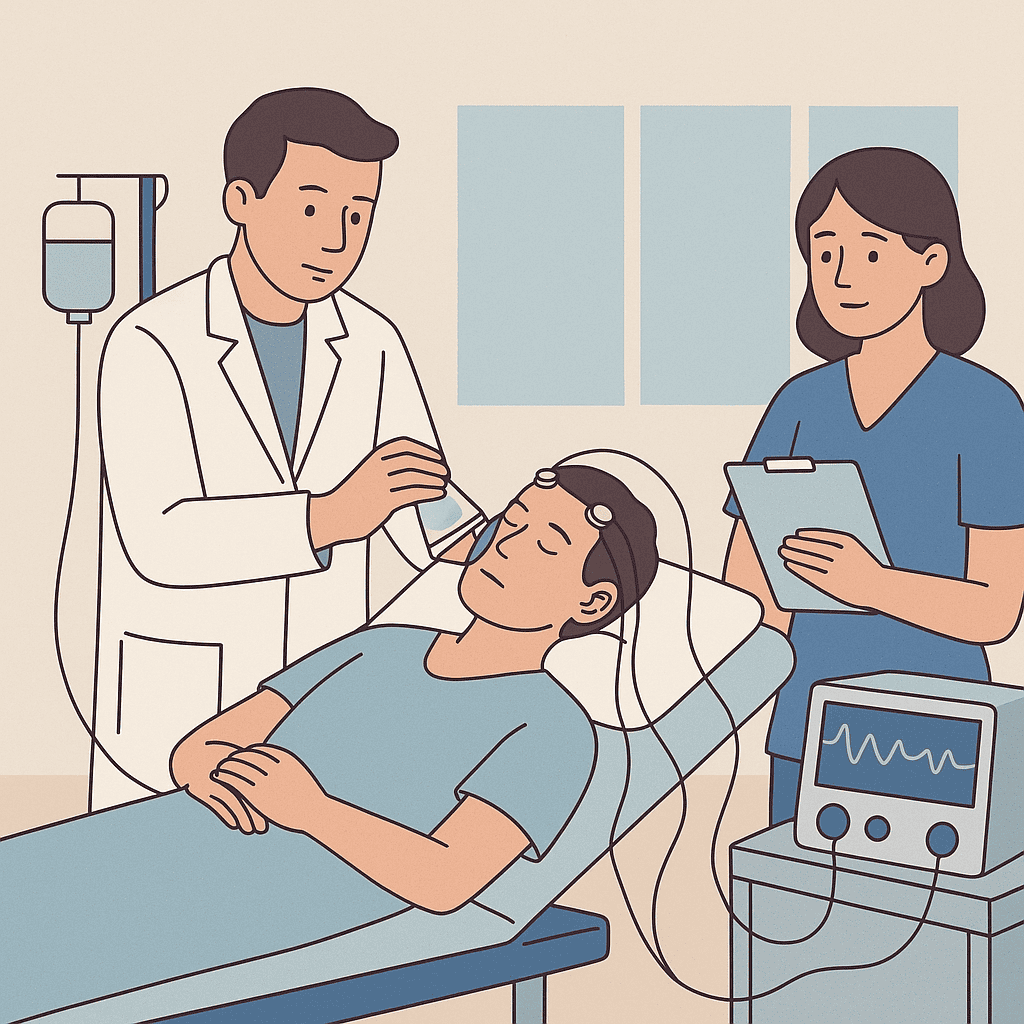mECT: A Safe and Scientific Way to Heal the Mind
 What Is mECT?
What Is mECT?
Modified Electroconvulsive Therapy (mECT) is a medical treatment used for certain severe mental health conditions. Despite what you may have seen in movies, today’s ECT is modern, safe, painless, and done under full anesthesia.
It can help when someone is:
-
Deeply depressed and suicidal
-
Not responding to medications
-
Not eating or talking (catatonia)
-
Having severe mania or psychosis
Many people recover dramatically with mECT—some even within a few sessions.
How Is mECT Done?
It’s a short, hospital-based procedure done under medical supervision:
-
The patient is put to sleep using anesthesia
-
A muscle relaxant is given to avoid any movement
-
Small electrodes are placed on the scalp
-
A mild electrical current is passed for a few seconds
-
The person wakes up in 5–10 minutes and rests for a while
The goal is to produce a short, controlled brain seizure, which helps “reset” brain circuits involved in mood and thought.
Why Do Doctors Recommend It?
mECT is life-saving when:
-
A person is suicidal and waiting for tablets to work may take too long
-
Someone is not responding to any medications
-
A pregnant woman has severe depression and cannot take strong psychiatric drugs
-
A person with catatonia stops eating, moving, or speaking
It is often faster and more effective than medications in such situations.
Is It Safe?
Yes. mECT is done under full medical care:
✅ General anesthesia
✅ Monitored heart, breathing, and brain function
✅ Pre-checks like blood tests and ECG
✅ Recovery within 30–60 minutes
mECT has been used for decades and is one of the safest procedures in psychiatry.
What About Side Effects?
Most people tolerate mECT very well.
Common, temporary effects:
-
Headache
-
Mild confusion
-
Muscle aches
-
Difficulty remembering recent events (short-term memory)
These usually go away within days or weeks. With modern techniques like ultra-brief pulse stimulation and better electrode placement, memory problems are much less common today.
Busting the Myths
| Myth | Fact |
|---|---|
| “ECT is painful” | mECT is done under anesthesia—you won’t feel anything |
| “It’s outdated” | Today’s ECT is scientific, modern, and monitored |
| “It causes brain damage” | There is no evidence of brain damage from mECT |
| “It’s only for serious mental illness” | mECT is used in many treatable, temporary conditions, like postpartum depression or catatonia |
Real People, Real Recoveries
Many patients who were severely depressed or unable to speak due to catatonia have returned to their daily lives after just a few sessions of mECT. In fact, families often call it a turning point in the recovery journey.
Is Consent Needed?
Yes. As per the Mental Healthcare Act, 2017 in India:
-
Written informed consent is mandatory
-
If a person is too unwell to consent, a nominated representative (family) may sign
-
Unmodified ECT (without anesthesia) is banned
Conclusion: When Hope Needs a Quick Start
mECT is not a punishment or last resort. It’s a modern, humane medical treatment that can offer rapid relief and long-term recovery—especially when time is critical.
If you or your loved one is struggling with severe depression, psychosis, or catatonia, talk to your psychiatrist. mECT could be the safe, scientific solution you didn’t know existed.
Consult a Specialist
Dr. Srinivas Rajkumar T, MD (AIIMS)
Consultant Psychiatrist
📍 Apollo Clinic, Opp. Phoenix Marketcity, Velachery, Chennai
📞 8595155808
🌐 www.srinivasaiims.com
Offering evidence-based care including mECT, tDCS, rTMS, and therapy for mood, anxiety, and psychotic disorders.